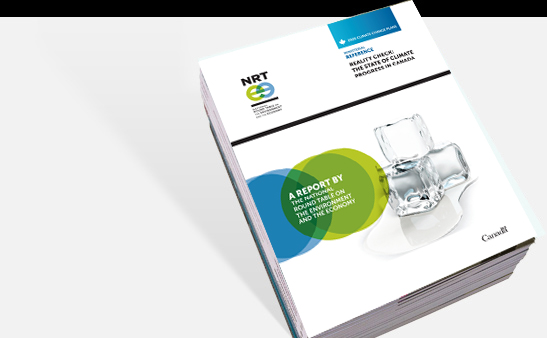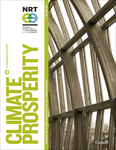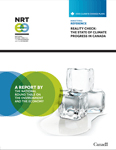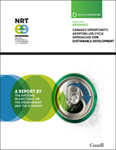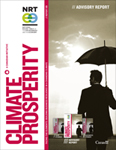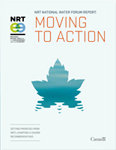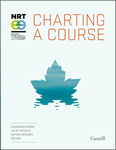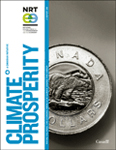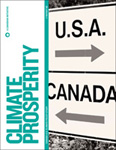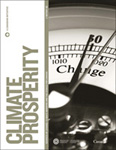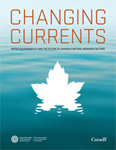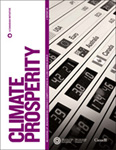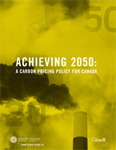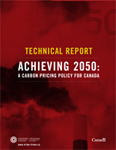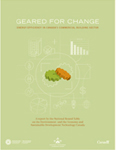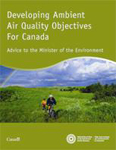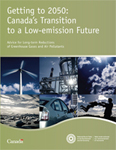News Release – December 16, 2010
Climate Change Adaptation Must be Higher on Canadian Agenda
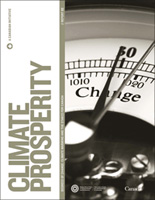 December 16, 2010 – A new report released today by the National Round Table on the Environment and the Economy highlights the need to adapt to the physical impacts of climate change if Canada is to cope and prosper through the expected negative effects of a warming globe.
December 16, 2010 – A new report released today by the National Round Table on the Environment and the Economy highlights the need to adapt to the physical impacts of climate change if Canada is to cope and prosper through the expected negative effects of a warming globe.
Called Degrees of Change: Climate Warming and the Stakes for Canada, the report contains a unique Canadian diagram illustrating 60 specific impacts of a changing climate on Canada across eight categories ranging from ecosystems and water resources to human health and others. The diagram was originally released as part of a joint initiative with the Royal Canadian Geographical Society earlier this fall. This new report builds on the diagram and provides more context and explanation, spelling out ‘what we can expect” for each of the impacts and categories, and ‘what we can do about it’ through adaptation.
“A changing climate makes the very concept of status quo irrelevant,” states the report. “Canada – our people, places, and prosperity – will all be affected by climate change.”
The NRTEE’s report sets out what Canada and Canadians can expect from warming temperatures leading to a changing climate and what we might do about it. It shows categorically that climate change will lead to mostly negative effects on most parts of our country, with impacts varying across regions and over time.
Some benefits could occur in selected areas, including longer growing seasons in some areas, leading to potential economic opportunities. But overall, negative impacts significantly outweigh positive ones on the Degrees of Change map.
Degrees of Change is unequivocal that global warming is occurring and that some climate change is inevitable with impacts on Canada. Adapting to some degree of climate change is now inescapable and, along with mitigation, needs to form a core part of Canada’s climate policy response to ensure communities are resilient and can continue to prosper through change in the decades ahead. This can include reinforcing infrastructure at risk in the North due to degrading permafrost or building seawalls to protect New Brunswick’s coasts from more storm surges. Adapting can also mean promoting long-term planning processes in areas like coastal zones, urban design and energy planning.
“Decades of carbon-related change lie ahead with escalating levels of regional impacts,” said NRTEE Chair Bob Page. “We must design our future not leave it to chance.”
Global temperatures have already risen 0.78 degrees Celsius above pre-industrialized levels with Canada warming at nearly double the global rate. The world is committed to at least half a degree of further warming based on current patterns. This is important as world leaders have set a target of preventing global warming from exceeding 2 degrees Celsius above pre-industrial levels.
“We need to understand what this will mean and how we can adapt and prosper through the stresses and uncertainties of climate change”, stated David McLaughlin, NRTEE President and CEO.
The NRTEE report sets out three main conclusions:
- Climate change can exceed both the capacity and the responsibility of any one government, community, or business to respond.
- A ‘one-size-all’ approach to ensuring climate-wise policy and investment decisions is unrealistic given the varying regional and sector impacts across the country.
- Climate change presents both risks and opportunities for business that proactive action can help address.
Degrees of Change is the second of seven reports in the NRTEE’s Climate Prosperity series examining the economic risks and opportunities of climate change to Canada. Its goal is to research and offer policy advice on how Canada can secure its environmental and economic future in a climate-changing world.
To download the report, please visit, www.climateprosperity.ca/degrees-of-change
For interviews with NRTEE Chair Bob Page, CEO and President David McLaughlin, or NRTEE Quebec Member John Hachey, please contact:
Brian Laghi
NRTEE Director of Communications and Public Affairs
613-943-2054 o
613-882-8134 c
laghib@nrt-trn.ca




